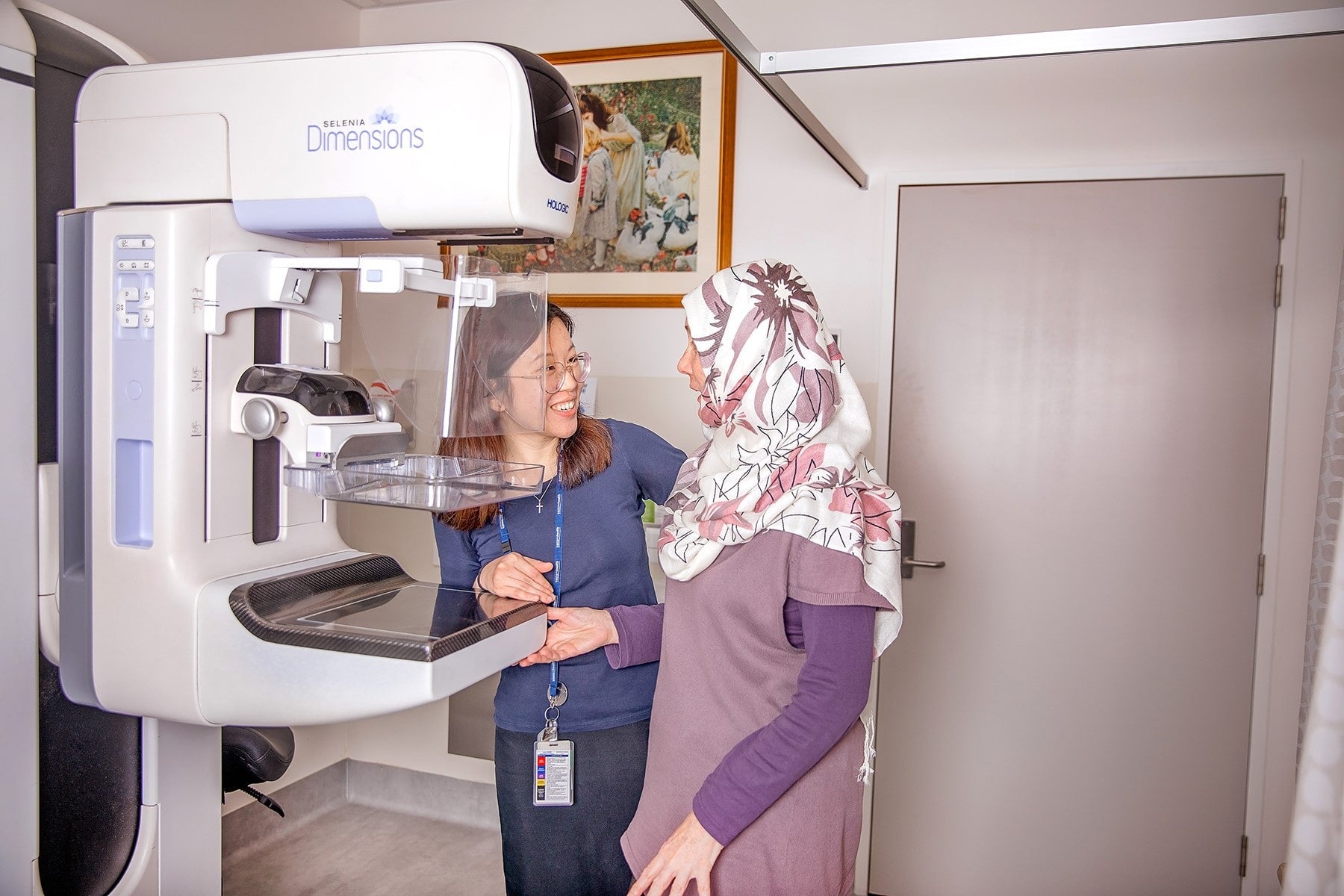Blog
Finding breast cancers early - a roadmap for personalised screening
1 October 2021

Population breast cancer screening aims to save lives by detecting breast cancers early in women without any symptoms. In the 30 years since BreastScreen services first opened their doors, screening has been proven to reduce breast cancer mortality in Australia, nearly halving the risk of breast cancer death among women who attend screening.
Meanwhile, we’ve seen advances in breast imaging technology and gained a much deeper understanding of the risk factors that can lead to breast cancer. Treatment has become more personalised so that breast cancers found early can be treated more successfully. This makes it even more important for breast cancers to be detected before they have a chance to spread.
To help make the most of these discoveries, a Cancer Council Australia project funded by the Australian Department of Health is investigating how breast cancer screening and related services might be personalised.
The Roadmap for Optimising Screening in Australia (ROSA) project is assembling evidence, undertaking modelling evaluations and epidemiological studies and working with stakeholders to come up with a consensus about the best way forward.
Over the past three years, the project team has taken a “whole system approach” to understanding the current practices and evidence. This includes how services outside the BreastScreen program might best support more risk-based approaches to screening in the future.
Leading the project is Associate Professor Carolyn Nickson from the Daffodil Centre (a joint venture between Cancer Council NSW and the University of Sydney) and the Melbourne School of Population and Global Health at The University of Melbourne.
The ROSA project rigorously and critically assesses the latest evidence on a range of topics such as breast cancer risk assessment, the role of breast density, and how different breast imaging technologies work for specific groups of women.
The project draws on decades of BreastScreen data and other health service information for the research. Combined with evidence reviews and stakeholder consultations, this will help to identify the most promising approaches.
Since 2018, the ROSA project has been undertaking targeted studies to answer questions such as:
1. Which screening technologies and intervals could be offered to different risk groups?
2. How and when could risk be assessed, and which health professionals could be involved?
3. Which age groups could be included in risk-based screening?
4. How would risk-based screening relate to other services such as GPs and family cancer centres?
Results so far
The interim findings highlight the validated risk assessment options available, including those that involve measuring mammographic breast density.
International studies show the potential for improved screening test accuracy for different risk groups through supplemental or alternative imaging. The balance of benefits (earlier cancer diagnosis, reduced treatment intensity and lives saved) and harms (poorer specificity of screening tests, increased overdiagnosis) in the Australian setting is being estimated through modelling studies currently underway.
The project is tracking the progress and findings from current international trials of risk-based screening,and considering how their results might translate to our health settings.
Data management
Before any more risk-based approaches to breast cancer screening are introduced, it is crucial to understand current outcomes for different risk groups. To assist with this, the ROSA team are working with the Australian Institute of Health and Welfare to explore opportunities to enhance current routine collection and reporting of BreastScreen outcomes.
Roadmap
ROSA is guided by a 5-year Roadmap that includes:
- horizon-scanning for emerging technologies and innovations such as new breast imaging methods
- new approaches to risk assessment
- the use of Artificial Intelligence (AI) algorithms to optimally combine information at the time of screening with clinical histories.
The goal is to make the most of international evidence and our understanding of Australian health services to find the best solutions for women.
As part of this, the project team works with stakeholders to identify how screening and clinical health services could work together as smoothly as possible if more risk-based screening protocols are recommended.
The ROSA project is working towards an exciting vision for personalised services.
The aim is to ensure that if a woman does develop breast cancer, it is found early, leading to a greater chance of successful treatment.
Watch a video on the ROSA project.
To keep in touch, contact the ROSA Project, via email: rosabreast@nswcc.org.au
